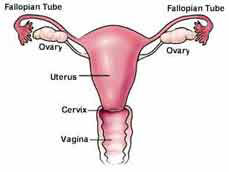A survey of GSTP1
polymorphism reveals it only increases risk in smokers
(Cervical
Cancer-March 18, 2003)
According to a study
from South Korea, "Previous studies have suggested that glutathione S-transferase
(GST) genotypes may play a role in determining susceptibility to cervical
cancer, though the data have often been conflicting. The objective of this
study was to examine the effect of GSTP1 polymorphism on cervical
carcinogenesis. The studied subjects, patients who were pathologically
diagnosed with invasive cervical cancer yielding positive results for human papillomavirus (HPV) (n=342); were compared to healthy, normal, female
controls (n=707).
genotypes may play a role in determining susceptibility to cervical
cancer, though the data have often been conflicting. The objective of this
study was to examine the effect of GSTP1 polymorphism on cervical
carcinogenesis. The studied subjects, patients who were pathologically
diagnosed with invasive cervical cancer yielding positive results for human papillomavirus (HPV) (n=342); were compared to healthy, normal, female
controls (n=707).
"DNA from peripheral
blood samples from studied subjects whose GSTP1 specific sequences had been
determined by PCR with allele-specific primers were reviewed in comparison
with the normal controls. The genetic susceptibility of GSTP1 (11q 13.1) in
cervical carcinogenesis was determined by examining the effect of gene and
environmental factors by the different histopathologic types of invasive
cervical cancers. In assessing polymorphism GSTP1, the percentages of
individuals homozygous for the A allele, homozygous for the G allele, and
heterozygous for the two alleles were 66.8%, 3.9%, 29.3%, respectively, in
the control group; and 64.3%, 4.1%, and 31.6%, respectively, among in women
with cervical cancer. Compared with GSTP1 G(+) (GA or G/G), the odds ratio
(OR) (95% CI) for GSTP1 A/A was 1.0 (0.7-1.4) for invasive cervical cancer.
However, the risk increased with GSTP1 A/A among ever smokers (3.9, 1.7-8.9,
p=0.0012) compared with GSTP1 G(+) among nonsmokers. In particular, this
risk was higher among women with squamous cell carcinoma (4.7, 2.0-10.8,
p=0.0003)," stated S.H. Jee and coauthors, Catholic University of Korea.
Jee and coauthors
concluded: "Polymorphism of GSTP1 among smoking women was associated with a
higher risk of developing cervical cancer."
developing cervical cancer."
Jee and colleagues
published the results of their study in Yonsei Medical Journal (GSTP1
polymorphism, cigarette smoking and cervical cancer risk in Korean women.
Yonsei Med J, 2002;43(6):712-716).
The corresponding author
for this report is J.S. Park, Catholic University of Korea, Department
Obstetrics & Gynecology, Kangnam St. Marys Hospital, 505 Banpo Dong, Seoul
137040, South Korea.
The information in this
article comes under the major subject areas of DNA Research, Genomics and
Genetics, Gynecology, Cervical Cancer, Hematology, Papillomavirus,
Infectious Disease, Oncology, Tobacco Use, Virology, Histology, Gene
Polymorphism and Women's Health. This article was prepared by Cancer Weekly
editors from staff and other reports.
ęCopyright 2003, Cancer Weekly
via NewsRx.com & NewsRx.net